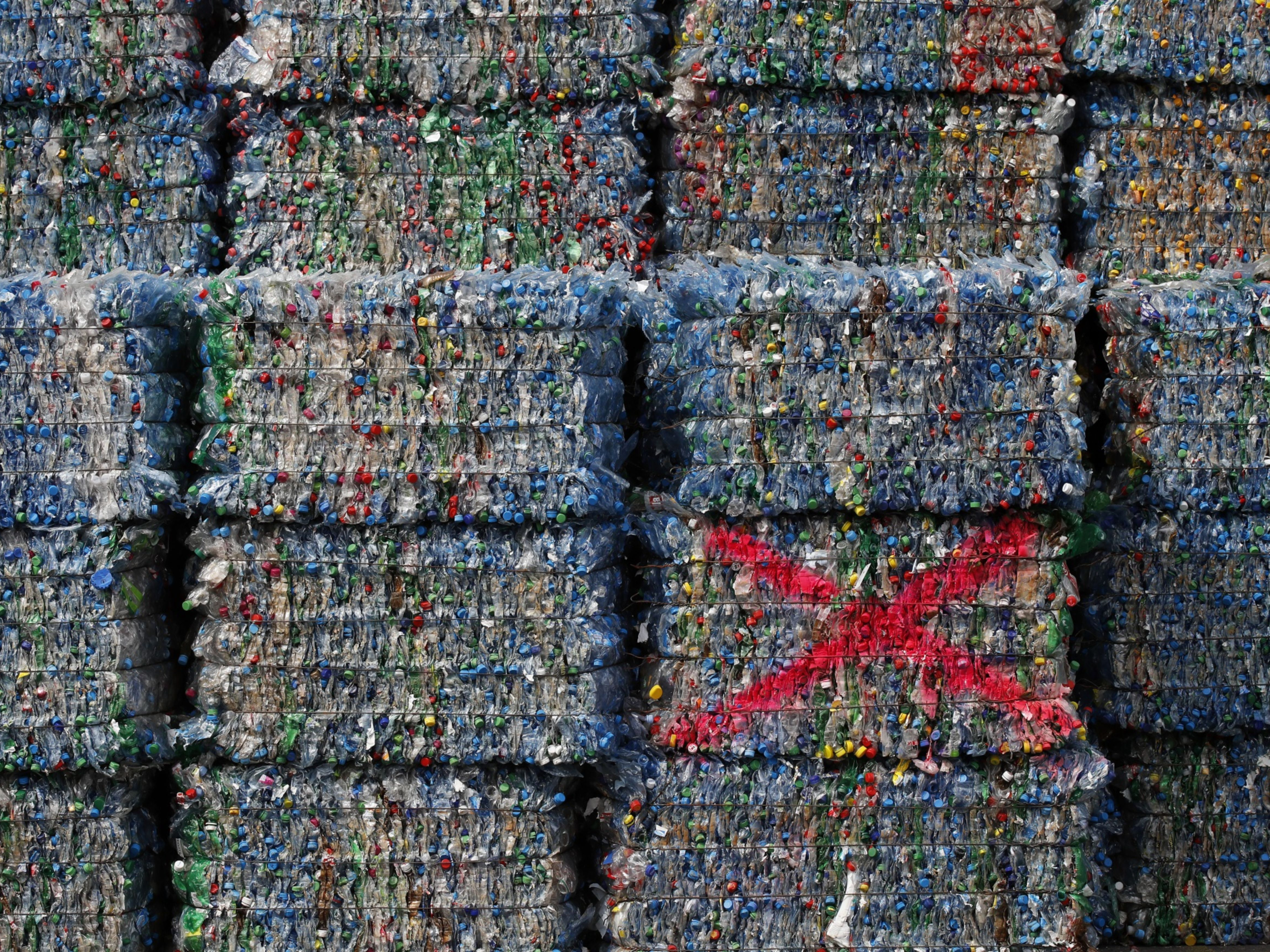
Visit Our Sponsors |
|
|
|
|
|
|
|
|
|
|
|
|
|
|
|
|
|
|
|
|
|
|
|
|
|
|
|
|
|
|
|
|
|
|
|
|
|
|

In the latest development of a global plastics recycling crisis, a California environmental group has announced it's suing Coke, Pepsi, Nestlé and other large companies for creating a pollution “nuisance” and misleading consumers about the recyclability of plastic.
With the changes of policy in China and Malaysia, which are now turning away recycling waste from the U.S., many may feel forced to acknowledge what a dirty and difficult business recycling plastic really is, and to question why we are prepared to dump the task on developing countries.
The trouble, of course, lies with producing all that waste in the first place. Among the hair-raising statistics are the fact that plastics generation was 35.4 million tons in the U.S. in 2017, according to the American Chemistry Council. National Geographic says 40% of that was for packaging, used just once and then discarded, including 380 billion single-use plastic bags yearly in the U.S. alone.
But it’s hard to change people’s habits. The recent introduction of a ban on plastic shopping bags in New York caused much harrumphing and mutters of governmental overreach. It didn’t help that the ban came into effect just as many were stocking up on 30-day supplies ahead of the impending Covid-19 pandemic. New York is the third to pass a state-wide ban, along with California and Oregon, while others have allowed municipalities to introduce partial bans or charges.
The plastics industry is fighting back, predictably, persuading states such as Florida and Texas to pass laws that actively prevent local municipalities from introducing their own bans. But some retailers, such as grocery chain Wegmans, stopped using plastic bags in anticipation of government mandates (and Costco never used them at all).
It should be a no-brainer; the average plastic bag is used for only 12 minutes, but takes 500 years to break down in landfill. Also, the practice of offering bags to customers is relatively recent — department stores began only in the 1970s, and supermarkets in the 1980s.
Packaging and bags sit at the very end of the supply chain, of course, but this growing change in attitude is already having an effect on the industry, and will only increase. This report from McKinsey predicts global commercial growth will be “chipped away” by consumer and governmental concerns about sustainability.
As this UN Report documents, more than 50 nations — from the Galapagos Islands to India, and from Rwanda to China — are taking action to reduce plastic pollution. India’s prime minister pledged in June 2018 to get rid of all single-use plastics in the country by 2022. On the whole, although China remains the world’s biggest polluter (including plastic waste, fossil fuel emissions and more), the U.S. has consistently lagged other developed nations in addressing issues of waste and sustainability.
The logistics industry has plenty of waste overall, and many ways to reduce it, including smarter organization of inventory and truck-route optimization — the technology to do so abounds. Many global brands are also rising to the challenge of introducing re-usable packaging. (Or re-introducing; some of us are old enough to remember milk rounds that picked up used glass bottles to return to the dairy.)
While the petrochemical, plastics and retail giants continue to fight for a continuation of the upward trend in plastic consumption (and therefore waste), it would be wise to note that the trends in consumer attitudes point in one direction only. Supply-chain practitioners who make the effort to reduce waste in an economically viable way will surely thrive. The all-powerful consumer will win out in the end.
It’s not just the young ‘uns who care, either. Although one survey showed that U.S. internet users ages 18 to 24 were more than twice as likely to fully integrate “green” behavior into their daily lifestyles than those over 35, a Harris Interactive poll of U.S. internet users' environmental activities found that mature respondents (ages 63 and older) were the most likely group to engage in energy reduction in their homes, purchase energy-efficient appliances, buy more locally grown food, and break their bottled water habits.
According to this report, 88% of those who watched the final episode of BBC’s Blue Planet II, which highlighted plastic waste in the oceans, have since changed their behavior as a result. The torch-bearer demanding change in that TV show? Ninety-year-old Sir David Attenborough.
Helen Atkinson is a contributing writer to SupplyChainBrain.
RELATED CONTENT
RELATED VIDEOS
Timely, incisive articles delivered directly to your inbox.

